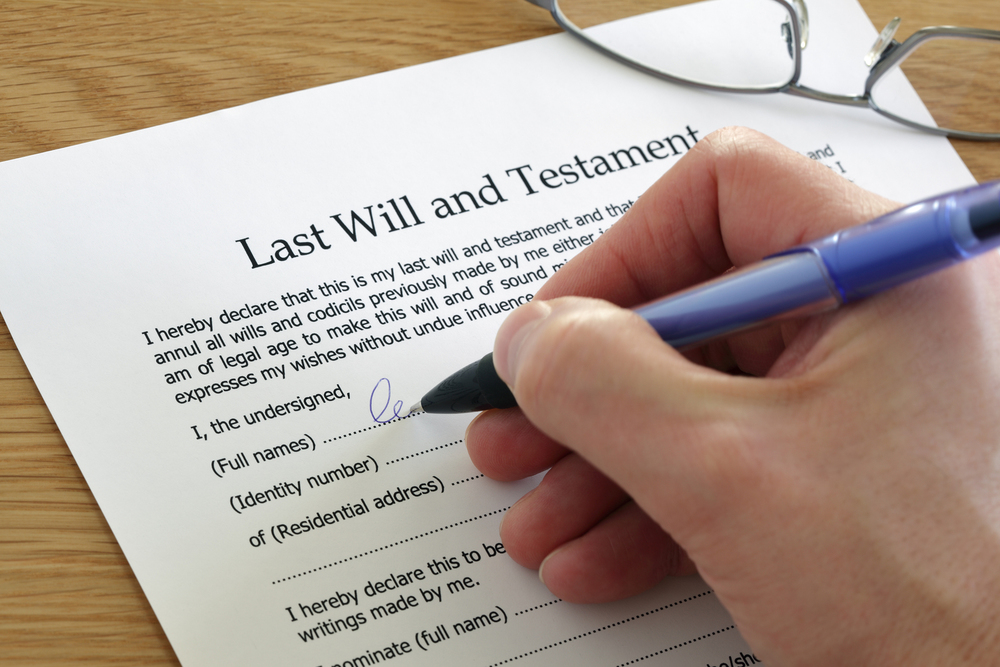 A recent USA Today Snapshot revealed that 64-percent of Americans don’t have a will. The top reasons: haven’t gotten around to it; not urgent; don’t have a lawyer; don’t need one; don’t like thinking about death; and cost.
A recent USA Today Snapshot revealed that 64-percent of Americans don’t have a will. The top reasons: haven’t gotten around to it; not urgent; don’t have a lawyer; don’t need one; don’t like thinking about death; and cost.
While it may not be as important when compared to having a Power of Attorney (POA), a will is still an important legal document to have in your estate planning tool kit. There are legitimate explanations for some of the USA Today survey: procrastination and cost are easily explained. But some of the other answers are not so.
So why do I need a will?
A will is a legal declaration of a person’s intentions and desires the he directs to be carried out after his death. Who do you want to get your stuff after you’re dead? By making a will, you can specify how you want your stuff distributed. Your daughter wants great-grandma’s china. Mention it in the will. Your son wants your gun collection. Write it in the will. You want to start a college fund for your grandson. Make your wishes known in the will. Whatever you want done can be listed in the will.
It can’t be stressed enough for parents to have a will. Let’s say Bob is 45, a widower, and has two teenage children. Bob unexpectedly dies. What about the kids? Who will take care of them? A will allows you to provide for the children’s care by appointing a guardian to look out for their needs until the children reach a certain age. The guardian could be your sister or a close friend, a responsible adult who will have your best interests in mind. What if one of Bob’s kids is special needs and may require lifelong supervision? The guardian will serve in the same capacity and manage that child’s care for as long as necessary.
Here’s another service a will provides. It allows you to name a personal representative, a manager of sort, who has the authority to collect assets, pay bills and distribute your estate according to the terms of your will. That could be a family member, close friend or even an unbiased third-party who has no claim to your estate and belongings. Remember, if your will is contested by that second-cousin from Nevada and it goes to court, there will be bills that need to be paid. Who pays them? Your representative can act on your behalf until the matter is resolved.
There are more mini-Warren Buffets out there in the world than you think. He or she may own half of lawn-care business with a relative or friend, or is the silent partner with three other folks on a duplex apartment building. If you fit these criteria, for example, the will directs the smooth transition of those assets. Who will run your lawn-cutting business or manage your kingdom of rental properties? It’s dictated in the will. Even if you want to sell some of your rental property off at the time of death and the money divided up between your family, make that known in the will.
After someone dies, one group that benefits is charities, organizations and institutions. If you’re charitably inclined, this is the time to direct your assets to the charity of your choice or to the building fund at your church, college alma mater or the local animal shelter that you volunteered at. Likewise, if you leave your assets to an organization, a will can see that your wishes are carried out.
So how do I get a will? Even before you enlist the services of an attorney (and that is the best way to do it; an attorney is familiar with your state’s laws and has experience in writing wills) the first place to start is to compile a list of your assets and debts, if there are any. Be sure to include bank and stock accounts, the contents of safe deposit boxes, items of sentimental value, family heirlooms and other assets that you wish to transfer to a particular person or entity.
Once the will is written, the next step is to put it in capable hands. That person could be your spouse, son or daughter, trusted friend, or a professional advisor. Remember, your wishes can only be carried out if they are known. Putting your will in capable hands ensures that it will be available when it’s needed.
Contrary to popular belief, a will does not go into effect until your death. Until then, other legal documents, like the POA and a living trust, would serve you best while you’re alive.
Here’s another common question: what happens if I don’t have a will? There’s a legal term for that, and it’s called intestate, and it simply means you died without having a valid will. Dying intestate can be unnecessarily costly for your heirs and leave you with no specific say about who receives your assets or in what proportion those assets will be distributed. Remember your daughter wanting great-grandma’s fine china? Without a will, there’s the possibility your daughter might not get the china.
The state will oversee the distribution of your assets. The state does not inherit your assets, but rather distributes them according to a set formula. The formula often results in half of your estate going to your spouse and half going to your children. This can create financial and emotional difficulties, particularly if your spouse was counting on the bulk of your assets (remember the rental property scenario?) to maintain his or her standard of living. Further complications can arise if your children are minors, as the court will appoint a representative to look after their interests.
Remember, a will is created to minimize tensions between surviving family members. Dying intestate creates problems.


